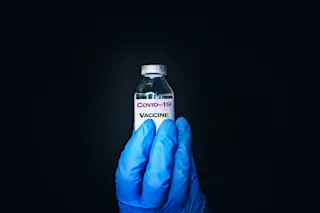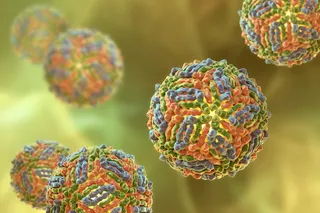Each year, vaccines prevent an estimated 2 to 3 million deaths around the world. And as the COVID-19 pandemic rages on, experts say that the new vaccine candidates from Pfizer and Moderna could be the ticket to ending the pandemic and saving millions of lives.
The bad news? Not everyone is willing to get vaccinated. A recent Gallup poll showed that just 63 percent of Americans would be willing to receive a vaccination for COVID-19 once one is approved by the FDA — meaning that hundreds of millions of Americans will still be vulnerable to the novel coronavirus by not getting a vaccine.
Although vaccine hesitancy is in the news now thanks to COVID-19, it's actually a phenomenon that has been around for years. In the past several decades especially, vaccines have been subject to more scrutiny and less public trust, whether it's through parents who opt for “alternative” vaccine ...














